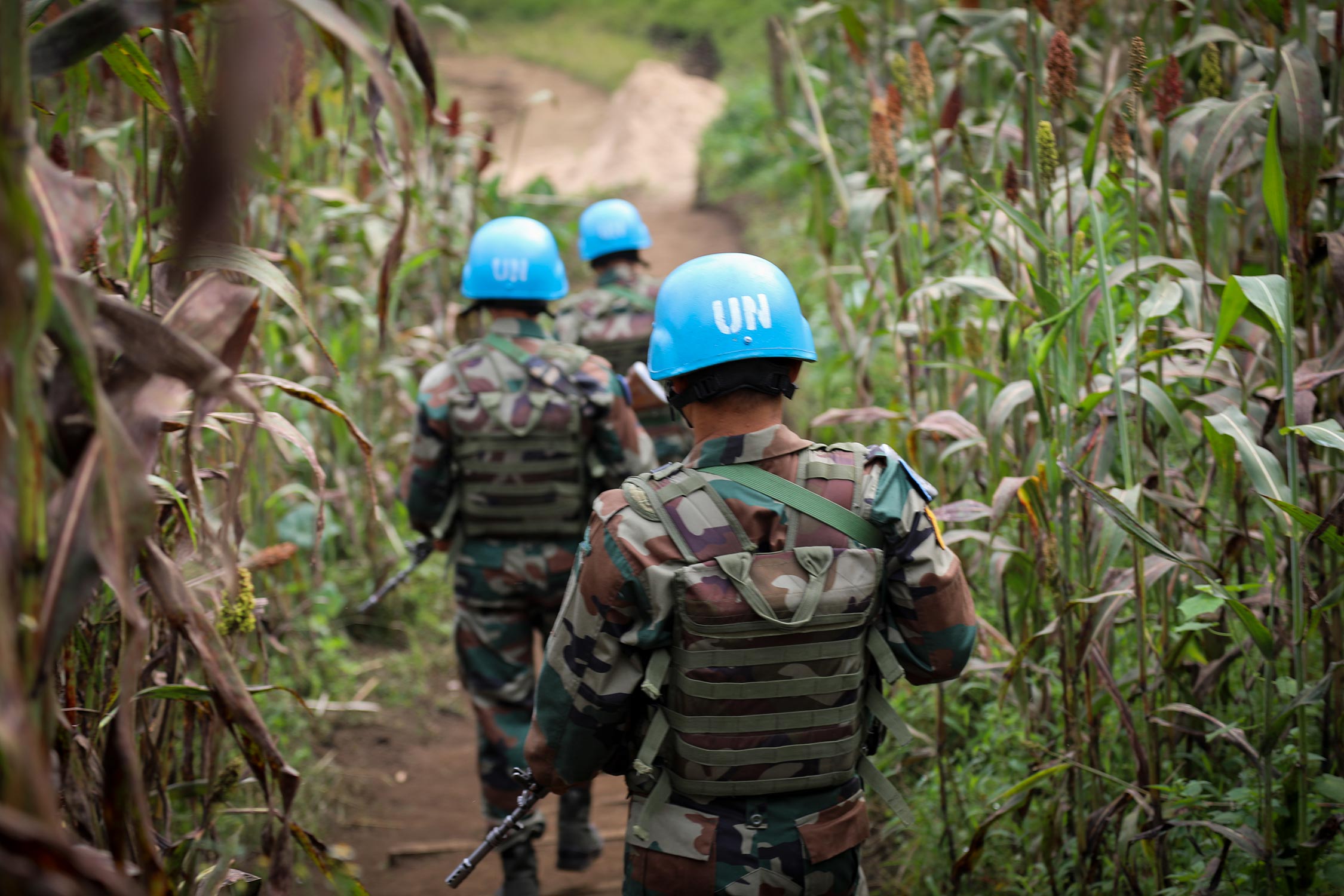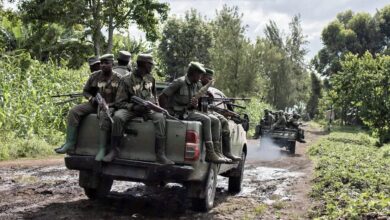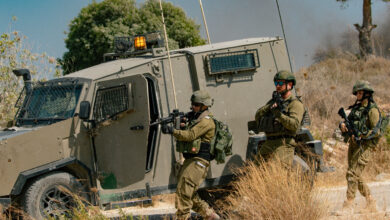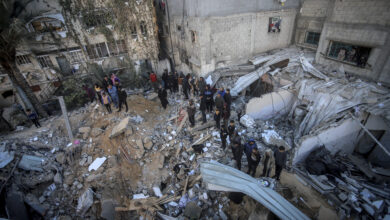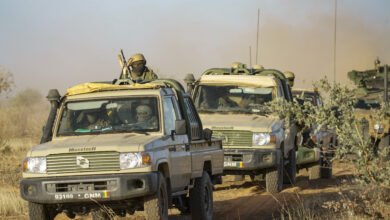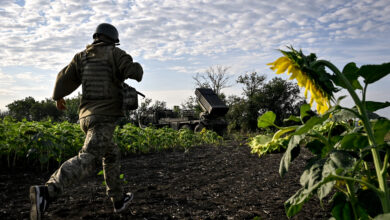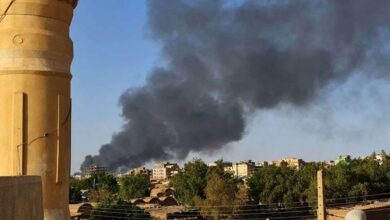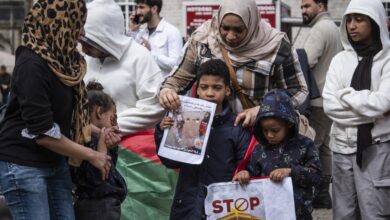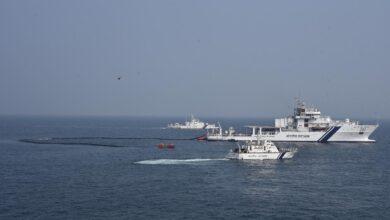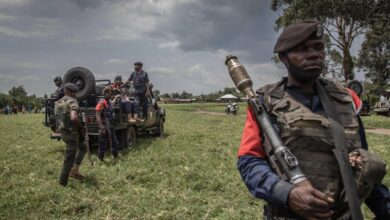The United Nations peacekeeping mission in DR Congo said Wednesday it was launching a probe after gaining evidence that one of its troops had killed a young protester.
“The elements that we have indicate that it was Blue Helmets who were responsible for the death of this young man,” a spokesperson for the mission, MONUSCO, told AFP on November 27.
The death occurred on Tuesday in the eastern city of Beni where locals have been demonstrating against MONUSCO, accusing it of failing to protect them against a notorious militia.
In a statement, MONUSCO quoted mission chief Leila Zerrougui as saying the man “was reportedly killed in an exchange with Blue Helmets as he was about to throw a petrol bomb.”
Separately, a student was injured and 10 other people arrested on Wednesday as Congolese police broke up a demonstration outside the university in Goma, one of two cities in the province of North Kivu where anger has boiled over.
Demonstrations erupted in the city of Beni on Tuesday and the town of Butembo, 50 km (30 miles) away, military prosecutor Kumbu Ngoma told AFP’s correspondent in Beni.
Two people were killed during demonstrations against a wave of violent attacks on civilians by armed groups.
The toll of two dead was confirmed by a MONUSCO spokesperson in the capital Kinshasa.
An AFP reporter saw the body of a young man with a head wound, lying about 50 metres from a U.N. camp. Malawian U.N. peacekeepers were deployed at the base, but Congolese security forces had also been in the area, and it was unclear how the young man had been killed.
On October 30, the Armed Forces of the Democratic Republic of Congo (FARDC) announced the start of an offensive against armed groups in North Kivu province in the east of the country, which has been beset by violence from dozens of armed groups, notably the Allied Democratic Forces, a shadowy militia that has its historical roots among Ugandan Islamists.
Since then, attacks have killed dozens of civilians, in what some commentators say are warnings from the ADF not to collaborate with the authorities.
On November 19, between 10 and 21 civilians were killed in two attacks blamed on the ADF in the Boikene district of Beni and in Mavete.
The following day, groups of young people began to protest in Boikene, calling on the FARDC, police and MONUSCO to ensure the safety of the population.
Officials stressed that the U.N. mission was not part of the government operation and was not involved in its planning, but said MONUSCO was willing to support FARDC operations if conditions allowed.
A protester died in police firing on November 23, and two police officers were killed the same day by angry demonstrators.
But demonstrations escalated after eight civilians were killed in another attack in the Boikene district of Beni late on November 24.
Protestors the following day set fire to Beni town hall and stormed one of two U.N. camps, where they burned an office. Four people died in the Monday protests, Ngoma said, adding that 10 civilians and three Congolese military personnel were injured.
The same day Congolese presidency announced the FARDC and U.N. peacekeepers would launch “joint operations” aimed at “ensuring peace and security for the civilian population.” MONUSCO separately said it would “strengthen cooperation with its partners and work closely with the authorities to jointly find solutions for the people of Beni.”
On Tuesday, Leila Zerrougui, the Special Representative of the U.N. Secretary-General in the DRC and head of MONUSCO spoke to journalists in New York after briefing the Security Council behind closed doors.
“We are facing challenges which are very hard for a mission to deal with because you have demonstrations from people frustrated with attacks from armed groups; from ADF but other armed groups in the area,” Zerrougui said, noting that around 80 people have been killed in around 14 attacks so far this month.
“We are dealing in a very difficult context,” she said, adding that there are some “people that manipulate the suffering of the people and use it either against the government or against MONUSCO.”
“We are the scapegoat. We know that. We assume and accept because we have no other option than to do our work and to try to mitigate the attacks against the civilian population.”
The ADF in DR Congo
Democratic Republic of Congo has been wracked by conflict near its eastern border, with many of the militias having evolved from the two Congo wars (1996-1997 and 1998-2003).
The Beni territory, in the North Kivu province which borders Uganda and Rwanda, has been particularly affected by militia violence.
Among the militias troubling the Kivu area are the Allied Democratic Forces, an Islamist-rooted armed group that has been linked to Islamic State Central Africa Province, and the Democratic Forces for the Liberation of Rwanda (FDLR).
Both groups have been blamed for a string of atrocities in eastern DRC, but they are also a source of political friction between the DRC and its neighbors because of their cross-border nature.
In April, ISIS formally recognized its Central Africa Province in Democratic Republic of Congo, when its centrally controlled media outlets began to attribute attacks to ISCAP, and during his first video appearance in five years, ISIS leader Abu Bakr al-Baghdadi was seen viewing a document entitled “Wilayat Central Africa.”
There was earlier evidence that ISIS had ties to the Allied Democratic Forces, a Ugandan-led but DR Congo-based militant group that mainly operates in the border area of North Kivu province, but it is unclear if the new ISIS affiliate is the ADF, a splinter group, or a different organization.
Formed in 1995, the ADF is thought to have killed hundreds of civilians and more than 20 U.N. peacekeepers, but although it is often blamed for killings, robberies and kidnappings, numerous armed groups operate in the region and it is often difficult to be certain who the true assailants are.
President Felix Tshisekedi ordered the operation in Kivu “to launch a final assault against all national and foreign armed groups with a view to restoring total peace in the Far North.”
DR Congo’s government has in the past accused neighboring governments of seeking to destabilize the country, while those accused have in turn said DRC is a haven for groups that oppose them.
With reporting from AFP

